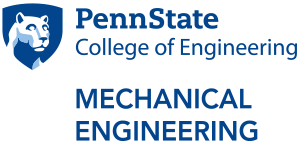Andrew Nuss
Graduation Year: 2003
Position: Executive Fellow, Naval Sea Systems Command (NAVSEA), the US Navy’s agent for designing, building, delivering and maintaining ships, submarines and their systems.
What made you choose engineering?
As a kid, my belief was that engineers drove race cars, and that sounded like a lot of fun. Once I got closer to college I had a better sense of what engineers do – designing, building and using things that we use in everyday life. As a young person I was constantly exposed to engineering and figuring out how things worked through my dad and my grandfather. They were always working with their hands and tinkering with stuff, so it seemed like a natural fit for my own career, and it appealed to my desire to perpetually figure out how it works, whatever “it” may be.
Who has made the most impact on your engineering career as a mentor today?
Outside of my immediate family, I don’t think I can point to one person, I’ve been fortunate to connect with many people and influencers who have helped guide and shape the paths that I’ve taken throughout my career. Having different mentors helps cast a wide net, and I’ve found that this set of people from different backgrounds has helped broaden my network. A trusted network of people you respect will provide invaluable perspective.
What has been the most challenging obstacle in your career so far?
Regardless of where you work, public or private sector, there will be challenges with processes, organizational barriers or decisions that impact your ability to do your job. The biggest challenge for me has been determining what I can affect and what I can’t, and letting that stuff go. This was something I learned early in my career and this mindset has paid off in a big way. In a previous position I had a staff of 30 people working for me I was able to communicate a sense of purpose and let that tone permeate my team so we focused on the issues that mattered, without getting caught up in the distractions.
What is your next big project or goal in the near future?
The Department of Defense is continually developing several highly complex and revolutionary systems – some programs are met with success and are seen to fruition, but many programs have limited success. Innovation is a top challenge right now to everyone in this arena, and we are constantly called to develop real solutions to the biggest challenges the DoD faces. My goal is to continue to identify, develop and field science and technology to support these systems to give our warfighters the competitive edge.
What interests do you have outside of your engineering career?
Family has always been extremely important to me, and it is certainly the focus now that we have a very active toddler at home. Spending time with him, my wife, and dog is the most important thing for me. I was one of the leaders of the Penn State Ski Team, so skiing and outdoor activities have always been a source of enjoyment but also fulfillment. In recent years cycling has become an important outlet, whether it’s a long weekend ride in rural Virginia, or simply bike commuting. Commuting by bike is typically my best opportunity to have some quiet time each day, and to think, or just zone out and enjoy the 30 minutes of solitude.
What advice would you give to current mechanical engineering students at Penn State?
Mechanical engineering is a special discipline because it gives you such a broad understanding of how things work and how to solve problems. However, sometimes we focus too much on the engineering problem we’re solving and we lose sight of the importance of the communication that is necessary to the entire process. Engineers that can communicate succinctly and directly, while describing complex problems and challenging solutions, will be the engineers that find success in their career. PowerPoint is a merely tool to help us, it’s not the answer. The technologies available to us should support our work but there are fundamentals that need to be in place to achieve real success. We need to able to articulate our ideas in public presentations and in written communications – whether that means a technical report, a brief, or an email to your team. Though it seems obvious, I think this is often overlooked. Strong communication skills will prove to serve you well, no matter your career choice.



